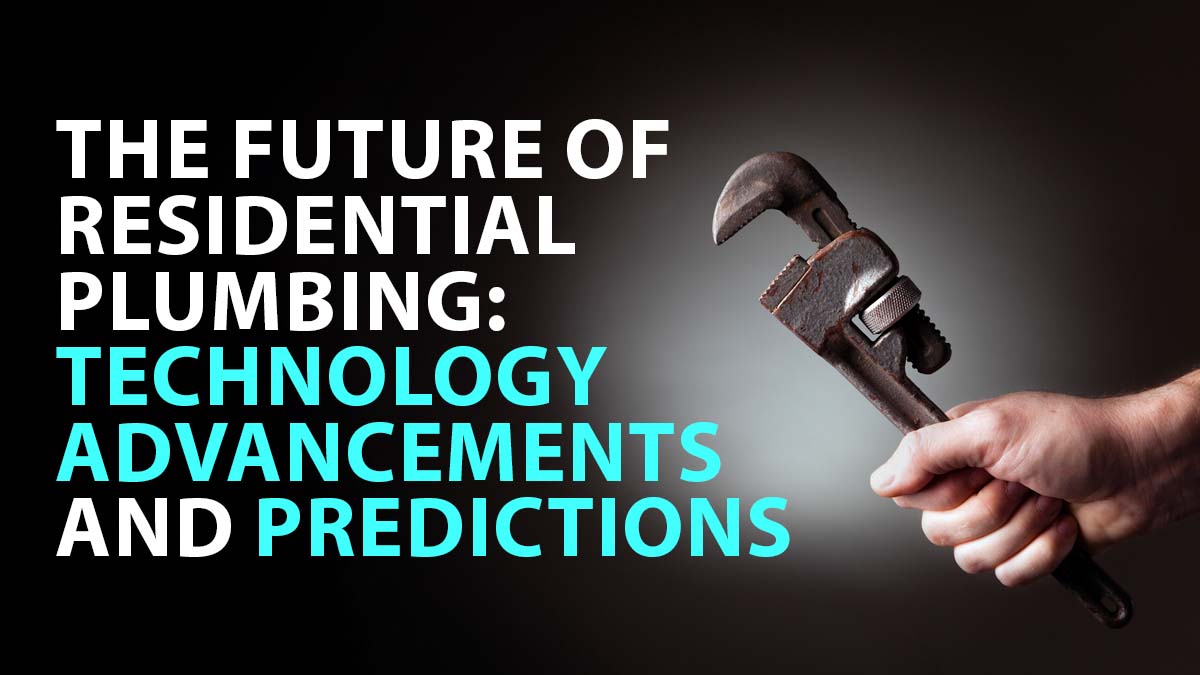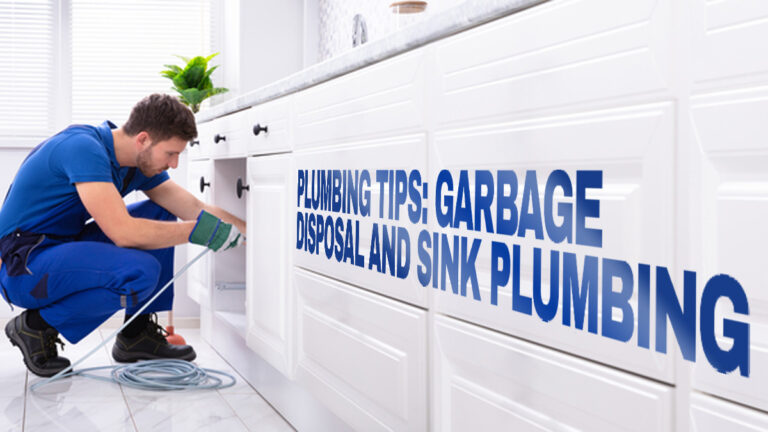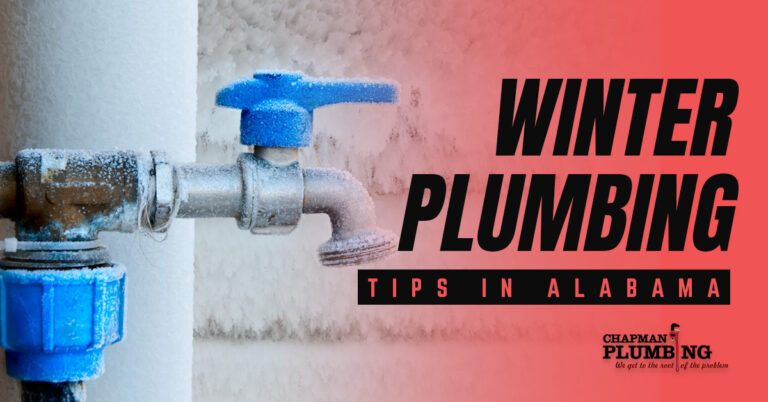The Future of Residential Plumbing: Technology Advancements and Predictions
Residential plumbing technology has significantly advanced in recent years, giving homeowners many options. Traditional plumbing systems have served us well for decades, but emerging innovative technologies offer improved efficiency and convenience. This article will explore the present status of residential plumbing technology, investigating both conventional and intelligent systems. Additionally, we examine predictions for the future of plumbing, including the integration of IoT devices, artificial intelligence (AI), machine learning, 3D printing, and advancements in pipe materials. Embrace the possibilities of the future and upgrade your plumbing for enhanced efficiency, water conservation, and unparalleled convenience.
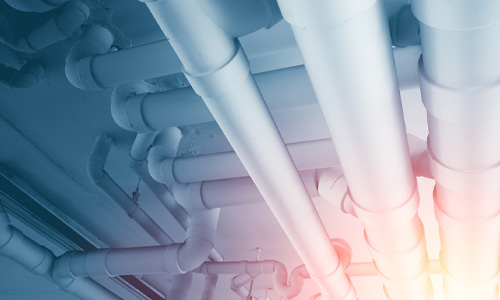
The Current State of Residential Plumbing Technology
Residential plumbing in Alabama has undergone significant advancements in recent years, offering homeowners a range of options for their plumbing systems. We can comprehensively understand the choices available to homeowners and the impact these technologies have on efficiency, convenience, and environmental considerations. Learn the current state of residential plumbing technology below:
a. Traditional plumbing systems
For decades, traditional plumbing systems have been the norm in residential buildings. Pipes, valves, and fixtures supply water and gas, removing waste and sewage in home plumbing systems. Traditional plumbing systems are reliable, durable, and relatively inexpensive compared to newer technologies. However, they also have downsides, such as limited efficiency, lack of automation, potential leaks, and other maintenance issues.
b. Smart plumbing systems
In recent years, intelligent plumbing systems have emerged as a viable alternative to traditional methods. Integrating sensors, software, and automation technology is the basis of innovative plumbing systems that improve water efficiency, detect leaks, and enhance overall performance. Additionally, these systems offer several advantages over traditional approaches, including real-time monitoring, remote control, and increased efficiency. However, intelligent plumbing systems can be more expensive and complex to install and maintain than traditional systems.
c. Pros and cons of each system
When choosing between traditional and intelligent plumbing systems, homeowners must consider several factors: cost, efficiency, convenience, and environmental impact. Standard systems are generally less expensive to install and maintain but may not be as efficient or environmentally friendly as intelligent systems. On the other hand, innovative approaches offer advanced features and benefits but may require more upfront investment and technical expertise to operate.

Future Predictions for Residential Plumbing Technology
The future of residential plumbing technology holds exciting possibilities as advancements continue to shape the industry. By examining these predictions, we can gain a glimpse into the innovative opportunities that lie ahead in the world of home plumbing technology. Below are the predictions for the future of residential plumbing technology:
a. Improved water conservation techniques
People have become concerned about water conservation in recent years and expect plumbing technology to address this issue. Future plumbing systems will likely feature more advanced water-saving techniques, such as low-flow fixtures, greywater recycling, and innovative irrigation systems.
b. Integration of Internet of Things (IoT) devices
IoT technology is rapidly advancing, and people expect it to impact the plumbing industry significantly. Plumbing systems will likely incorporate IoT devices, such as sensors, actuators, and controllers, to monitor and control water usage, temperature, and other factors.
c. Artificial intelligence and machine learning in plumbing systems
Several industries already use artificial intelligence (AI) and machine learning (ML), and plumbing technology is no exception. Plumbing systems will also use AI and ML algorithms to optimize performance, detect and prevent leaks, and automate maintenance and repairs.
d. 3D printing for plumbing parts
By enabling the production of customized and intricate details as needed, 3D printing technology has the potential to revolutionize the plumbing industry. In the future, people will likely use 3D printing to produce replacement parts, valves, and fixtures, reducing the need for inventory and improving the speed of repairs.
e. Advancements in pipe materials
We expect pipe material advancements to improve plumbing systems’ durability, efficiency, and safety. Furthermore, future pipe materials will likely possess increased corrosion resistance, longer lifespan, and outstanding environmental friendliness.
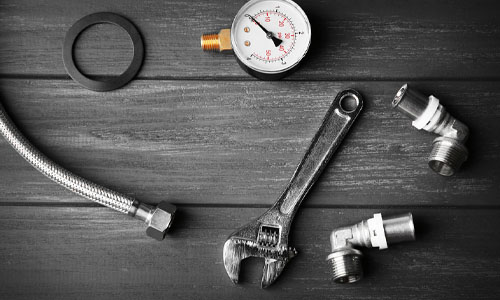
Benefits of Future Plumbing Technology
The benefits of future plumbing technology are poised to revolutionize residential plumbing systems, offering homeowners enhanced efficiency, convenience, environmental sustainability, and cost savings. Here are the advantages homeowners can expect from implementing future plumbing technology:
a. Enhanced water efficiency
Future plumbing technology is likely more efficient, reducing water waste and saving homeowners money on their water bills.
b. Increased convenience and accessibility
Innovative plumbing systems could provide greater comfort and accessibility, allowing homeowners to control their systems remotely and receive alerts when there are issues.
c. Reduced environmental impact
Using more sustainable materials and technologies could reduce the ecological impact of plumbing systems, including the carbon footprint associated with their production and use.
d. Lower maintenance costs
More durable and reliable plumbing systems could reduce the need for expensive repairs and maintenance, saving homeowners money in the long run.
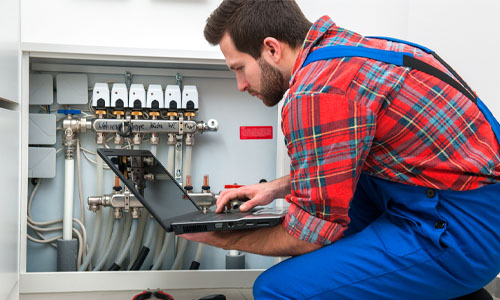
Challenges and Limitations of Future Plumbing Technology
While plumbing technology companies promise exciting advancements in the future, homeowners and industry professionals must consider and address specific challenges and limitations. Check these potential obstacles associated with future plumbing technology below:
a. High initial costs
Many of the advanced technologies associated with future plumbing systems are likely to be more expensive to install and maintain, which could limit their adoption by homeowners.
b. Privacy and security concerns
As intelligent plumbing systems become more common, there may be concerns about privacy and security, particularly about collecting and using personal data.
c. Dependence on technology
Innovative plumbing systems rely heavily on technology, which could be a disadvantage if there are power outages or other disruptions that affect their operation.

Embrace Innovative Residential Plumbing Technology at Lower Costs!
The future of residential plumbing holds remarkable advancements driven by plumbing advancements. Indeed, embracing these future plumbing technologies offers enhanced water efficiency, increased convenience, reduced environmental impact, and lower maintenance costs. While challenges exist, the advantages outweigh them, making it worthwhile to invest in intelligent plumbing systems and experience the benefits of the future today. By embracing these future plumbing technologies, homeowners can enjoy the advantages of a more efficient, cost-effective, and sustainable plumbing system. So, get ahead of the curve by upgrading your plumbing system today to reap future benefits.

